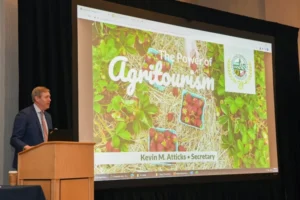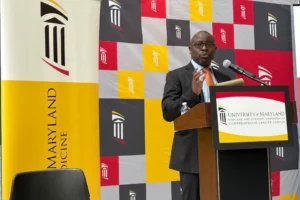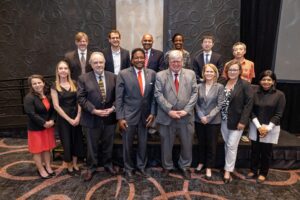Criminalize human trafficking in Maryland
Op-Ed published 3/6/19 in the Washington Post
Susan C. Lee, a Democrat, represents part of Montgomery County in the Maryland Senate. Wanika Fisher, a Democrat, represents Prince George’s County in the Maryland House. Susan G. Esserman is the founder and director of the University of Maryland Support, Advocacy, Freedom, and Empowerment Center for Human Trafficking Survivors.
Recently two young women from an African country escaped after being held captive for several years in a large home in the wealthy suburb of Potomac. They were forced to work 18 hour days seven days a week and were paid only 50 cents an hour. The head of the household seized their passports, kept them isolated and threatened them with violence if they tried to escape. The trafficker covered up this abuse through a complex deceptive scheme.
This form of modern day slavery is called labor trafficking. It is generally defined in U.S. federal law, the Trafficking Victims Protection Act, as the use of force, fraud or coercion to compel the labor or services of a victim. Labor trafficking is a multibillion-dollar criminal industry, and it is happening here in Maryland, throughout the country and around the world.
Many industries are vulnerable to labor trafficking: people have been forced to work in slavery-like conditions in restaurants, hair and nail salons, agriculture and in private homes as domestic servants. They work extremely long hours under inhumane conditions, often seven days a week, with no breaks, for little or no money. They are threatened, subjected to abuse, often denied food and medical care and live as virtual prisoners under terrible circumstances.
While not as well publicized as sex trafficking, labor trafficking is actually more prevalent. According to the International Labour Organization, in 2016, there were 16 million victims of labor trafficking and 4.8 million victims of sex trafficking worldwide. Yet labor trafficking victims, including here in Maryland, are under-identified and the crimes against them are underreported and under-penalized.
At the University of Maryland Support, Advocacy, Freedom, and Empowerment (SAFE) Center for Human Trafficking Survivors — a comprehensive direct services, research, and advocacy center on human trafficking — almost half of the people seeking services are victims of labor. The majority are vulnerable women from marginalized communities who were deceived by fraudulent contracts and false promises of legitimate jobs. But instead, they were compelled to work in virtual slavery under circumstances they were not free to leave — in domestic servitude, home health care, restaurants and agriculture.
Unfortunately, labor trafficking occurs in communities across Maryland. Without a state statute that specifically criminalizes labor trafficking, the perpetrators of these crimes in Maryland are unlikely to be brought to justice. The Anti-Exploitation Act of 2019 is a strong step forward toward preventing and deterring labor trafficking in our state.




